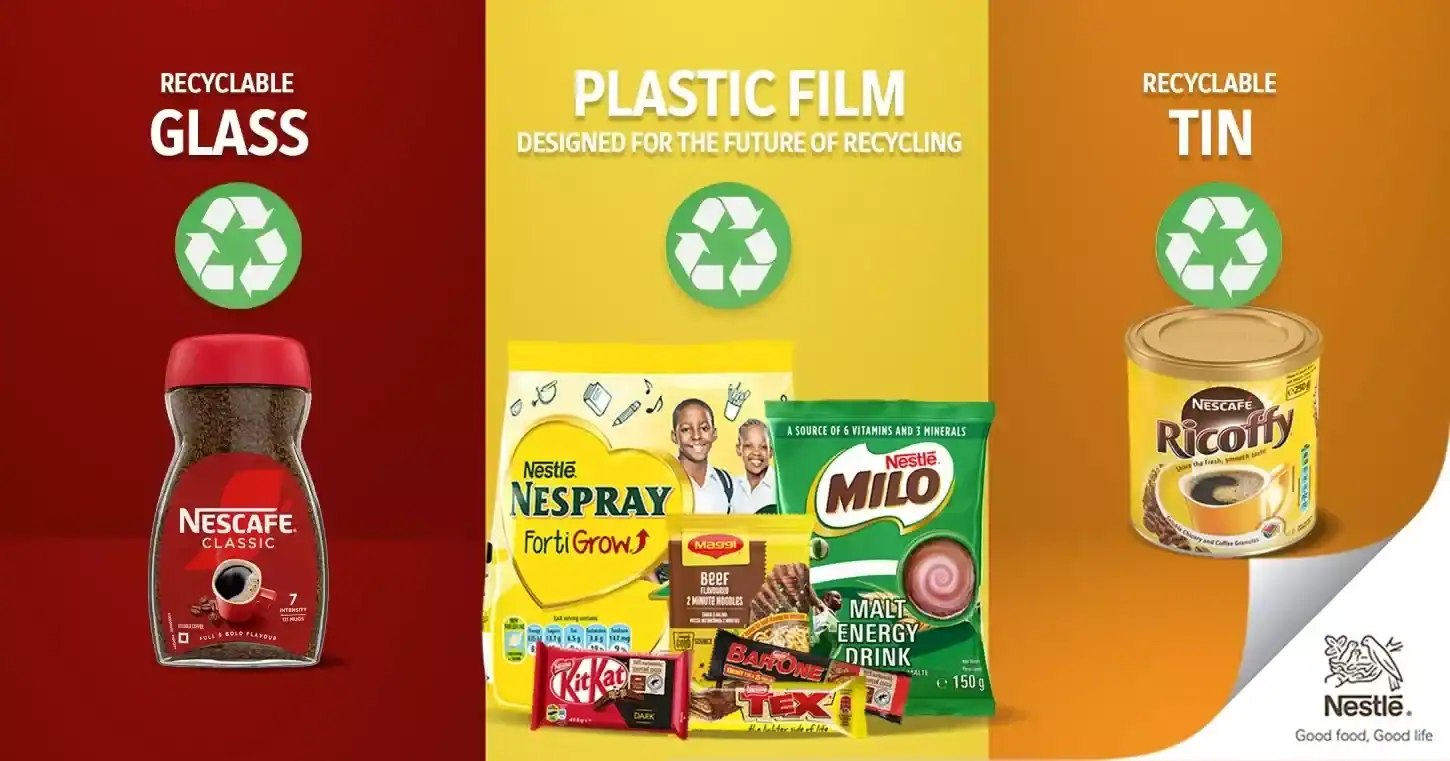At Nestlé, circularity comes alive in three sustainability pillars: rethink, reduce, and repurpose.
World Sustainability Day recently commemorated last recently as an annual reminder to address environmental issues and shift our focus towards reducing waste, preserving the planet, and fostering a sustainable future. This requires a commitment from big corporations to take a bold stance when it comes to sustainability.
World sustainability day highlights need for corporate responsibility
That is why Nestlé has always put in place practical solutions to reduce waste – from production to packaging. At the heart of this transformation are circular principles, simple yet fundamental means of shifting their approach to recycling.
Critically, at Nestlé, circularity comes alive in three sustainability pillars: rethink, reduce, and repurpose. These principles are a practical roadmap for evolving operations towards more sustainable means of production.
Nestlé’s commitment to sustainable packaging and recycling innovation
The company’s commitment to sustainability is highlighted by its focus on designed for recycling (D4R) materials. This strategy ensures that packaging can easily enter the recycling process, preventing more waste from ending up in landfills.
The shift to D4R materials has already resulted in significant reductions in packaging waste, demonstrating the meaningful impact that thoughtful design can have.
Leading the way in sustainable packaging across brands
Nestlé’s brands are making significant strides towards packaging designed for recycling. In addition, there are many practical ways in which consumers can rethink the way they repurpose materials, contributing to the overall reduction in waste.
Sustainability at the core of NESCAFÉ’s operations
NESCAFÉ is a brand which stands out when it comes to sustainability from an environmental point of view. The brand is committed to sourcing responsibly and tackling climate change, while also focusing on regenerative agriculture and greenhouse gas emission reduction through its long-term sustainability initiatives.
Reducing virgin plastic and integrating recycled materials
Some of the packaging aligns with Nestlé’s broader goal of reducing its reliance on virgin plastic. Virgin plastic significantly contributes to environmental degradation, and Nestlé has made substantial progress in reducing its consumption.
This includes integrating more recycled plastic into its packaging, contributing to a reduction in overall plastic usage.
Nestlé’s plastic neutrality goal: Vision for 2025
Nestlé’s ambitious strides towards plastic neutrality stand out as a significant contribution to global environmental goals. As the world’s largest food and beverage company, Nestlé is committed to reducing plastic waste and designing recyclable packaging.
By 2025, the company aims to have 100% of its packaging recyclable or reusable, having already made notable progress.
Tackling plastic waste: Nestlé’s commitment to waste-free future
In line with its vision for a waste-free future, Nestlé aims to ensure that none of its packaging — particularly plastics — ends up in landfills, oceans, lakes, or rivers. The company leverages innovation to tackle plastic waste at every level and drive sustainability across its operations.
Supporting recycling efforts in South Africa
South Africa’s plastic recycling landscape is evolving, and Nestlé plays a key role in contributing to national recycling efforts. The company has made significant strides in reducing plastic usage in its local operations and supports the growing recycling industry, which reduces pollution and provides employment opportunities.
Innovations driving sustainability: Fit-for-purpose packaging solutions
Innovation remains central to Nestlé’s efforts to tackle plastic pollution. The Fit-for-Purpose initiative optimises packaging by reducing material thickness, size, and weight, all while minimising the company’s environmental footprint.
Corporate responsibility in global fight against plastic pollution
It is essential to reflect on corporations’ role in the global effort to reduce plastic pollution and achieve a more sustainable future. Nestlé’s initiatives are a powerful reminder that large-scale businesses have both the responsibility and the capacity to lead by example in the transition to a circular economy.
Nestlé sets the standard for corporate environmental responsibility
Nestlé’s leadership in this area demonstrates that achieving plastic neutrality is possible and within reach, if companies commit to making sustainability a core part of their operations.
The company’s ongoing efforts to reduce plastic waste, increase recyclability, and design packaging for a circular economy reflect a long-term vision of sustainability.
Share your repurposing ideas
Tag a friend and share your tips & tricks on how you repurpose household items in your own home. Follow the conversation on TikTok and Instagram using the hashtags #NestleSustainability and #NestleGoodForYou as well-known content creators showcase the importance of recycling in their lives
#NestleSustainability
#NestleGoodForYou
Support Local Journalism
Add The Citizen as a Preferred Source on Google and follow us on Google News to see more of our trusted reporting in Google News and Top Stories.







